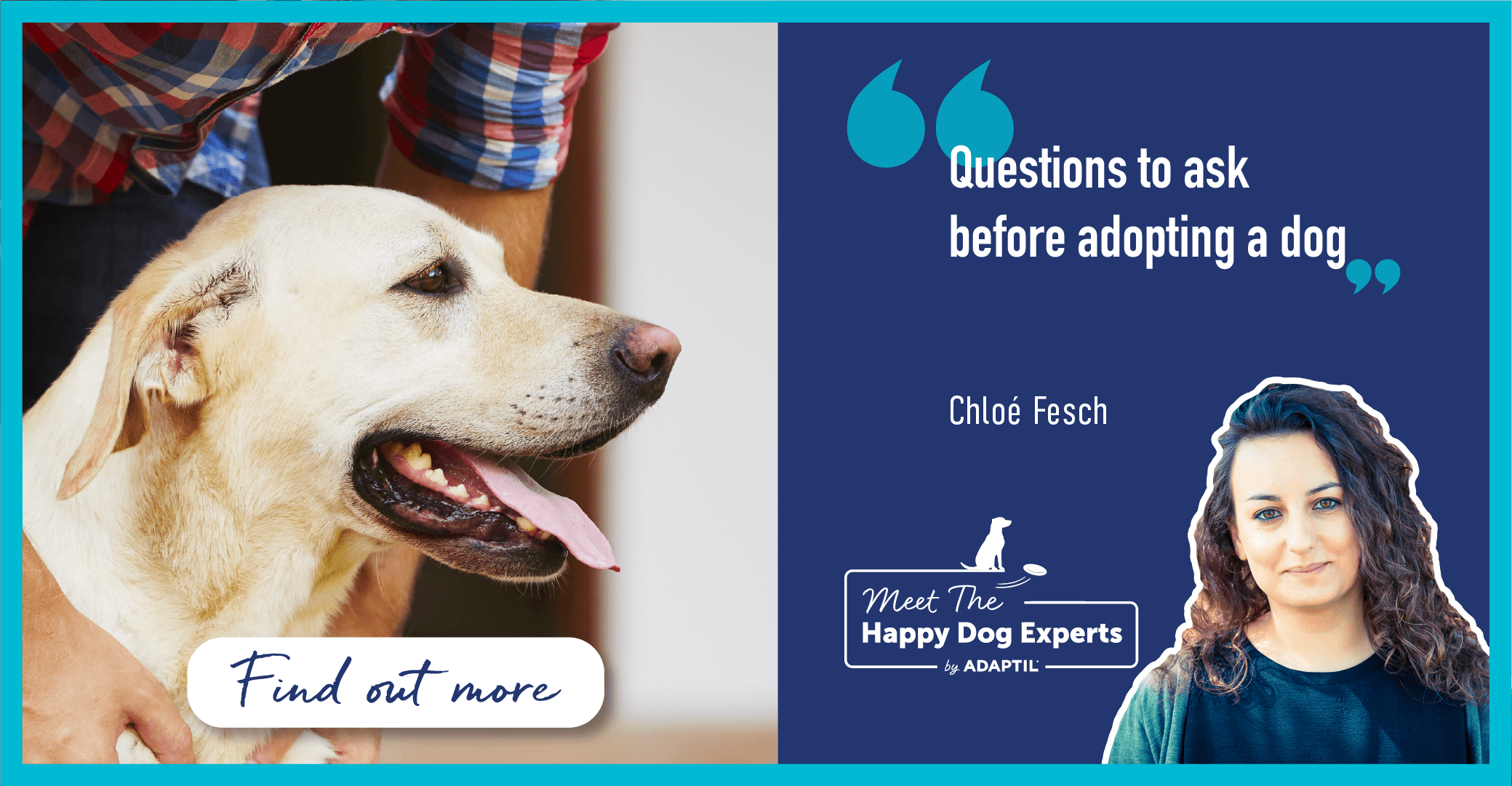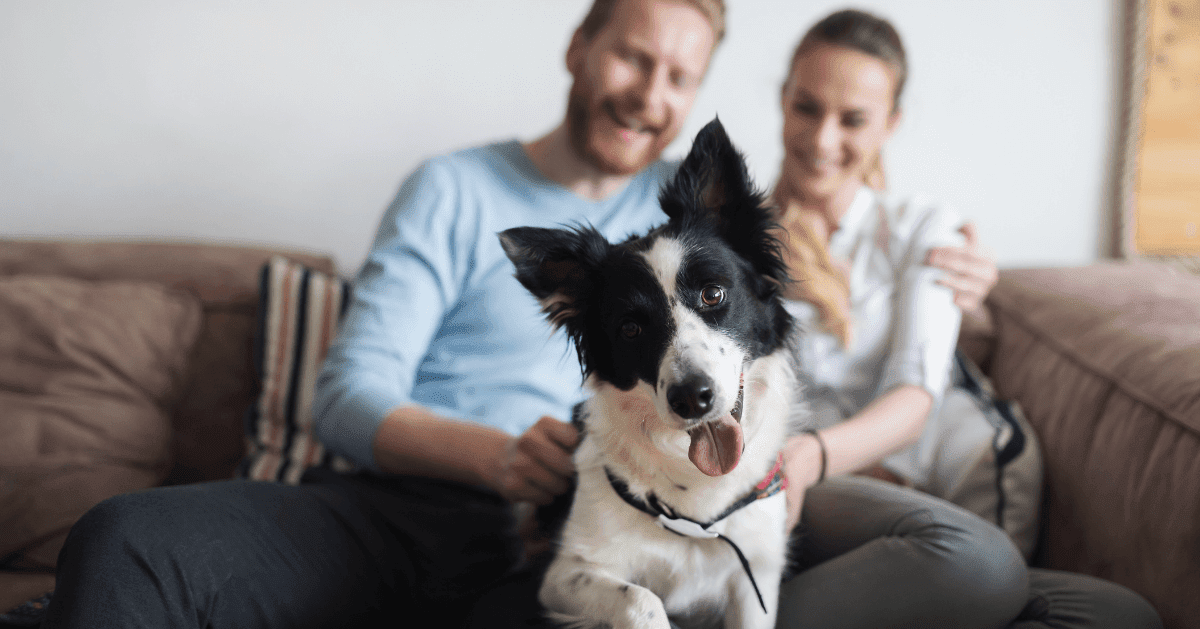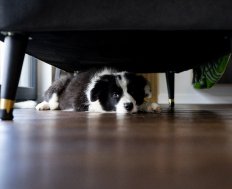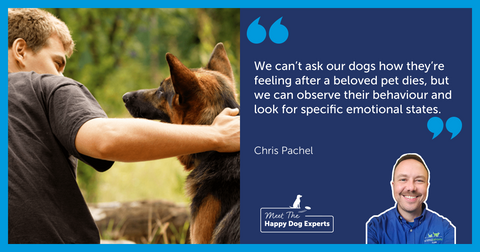
Questions to ask before adopting a dog - Happy Dog Expert - Chloe Fesch
Should I get a dog? And how do Ichoose the perfect one for me?
Bringing a new dog into the family comes with a lot of considerations In this article, I will answer these as best as I can, to guide you to the best choice for your future canine companion
Why do you want to adopt a dog?
This first question may seem strange, but it is essential to consider. You need to ask yourself what's motivating you to adopt a dog. How you answer this question can help you figure out the right dog for you!
By asking yourself this question, you will gradually highlight expectations you have for your future dog, allowing you to find a dog that will be completely adapted to you and your lifestyle.
Adopting a dog for the wrong reasons can sometimes lead to adopting a dog that is incompatible with your lifestyle and expectations.
An example is the adoption of a Husky; they are beautiful dogs, but they often have a strong instinct to chase prey. So if you are planning to let your dog run free whilst on walks, this could quickly become a real problem. Or, basing your choice to adopt a Malinois (Belgian Shepherd) on their reputation for being obedient can turn out to be a bit of a nightmare as their need for stimulation is so great. There are many similar examples.
So remember, don't adopt a dog for how they look; instead, base your decision on their personality, instincts and how they fit your expectations and lifestyle.

Should I adopt a puppy or an adult dog?
This is a common questionand is also regularly accompanied by preconceived ideas. It is not uncommon for people to hesitate to adopt an adult dog, fearing that the dog may have had bad past experiences and problem behaviours.
However, a dog is able to learn no matter their age. You can therefore use trainingto revisit a dog's basic education and address any bad habitsthey may have picked up. Such training happens daily in all animal shelters, so your adopted dog will have already started some training.
The same applies to the bond between you and a new dog. No matter how old your dog is at adoption, if you spend time with them and share moments of training and playtime, the bond between your pooch and your family will naturally grow and can become very strong.
If you're weighing up adopting or an adult dog, also ensure you consider whether you have enough time to welcome a young puppy into your home. A dog's experiences during the first months of life, including the time they are with their mother and littermates, are crucial for their future outlook. Thus, having positive, enriching experiences as a puppy will help them develop to their best potential. So, when adopting a puppy it's important to take the time to support your puppy as they learn about the world around them as well as other dogs and humans.

Where to find your dog: shelter or breeder?
Don't forgetthat animal shelters are full of dogs waiting for a family. It is easy to imagine adopting a shelter dog means adopting a dog with issues, but this is really not true for the majority of dogs in a shelter. Shelter dogs are primarily dogs who, for the most part, have lived with a family.
By taking your time to discover the dogs available, speaking with the staff at the shelter who have been caring for the dogs and will have some understanding of their personality, you can find the perfect dog for you. If you decide to adopt a puppy from a breeder, ensure you take the time to find out all you can about the breed and look around to find the right breeder for you.
There is no right or wrong answer; the important thing is to get as much information as possible to make the best possible decisions for your family.

Which breed is right for me?
You may have heard of the saying nature vs. nurture. The nature of a dog is a combination of the innate traits they possess, as well as the experiences they acquire. Each dog breedhas been selected according to their physical and behavioural traits to meet certain desirable characteristics.
So when you're attracted to a certain breed of dog, ask yourself what the functions of that breed are, what instincts that breed might have, and how that can translate into how they may behave in day-to-day life. Discussions with breeders and learning about the origins of a breed can be a good way to learn more. Do not hesitate to look at the breed files of official organisations in your country such as the Kennel Club, too.
Next, you will need to learn about the lineage of a dog, because the lineages within a breed can result in differences in their temperament.For example, Cocker Spaniels are either a working dog or show dog type. Cocker Spaniels are intelligent, energetic dogs regardless, but they can differ in appearance as well as exercise needs. A show type dog may be happy with long country walks and supporting people as an assistance dog, whereas a working type Cocker may thrive on canine sports, such as flyball or agility.
Lastly, each dog will develop their own personality. It is not right to make general statements about breeds such as all German Shepherds bark a lot or that all Yorkies want to be lap dogs.
When reaching your decision on what dog breed to adopt, use the funnel technique:
- Which breed appeals to me?
- Which line within the breed should I choose?
- Which individual dog has the right personality for our family?
Your new canine companion
Obtaining a new canine companion is a responsibility not to be taken lightly, as they will be a part of your family for many years. The perfect dog is out there that matches your expectations and lifestyle and will fit in as a new member of your family!
Of course we also want to choose dogs that are going to enjoy living with us. Taking this all into consideration and taking the time to find the right dog will set you on the path of developing a wonderful bond together.








































